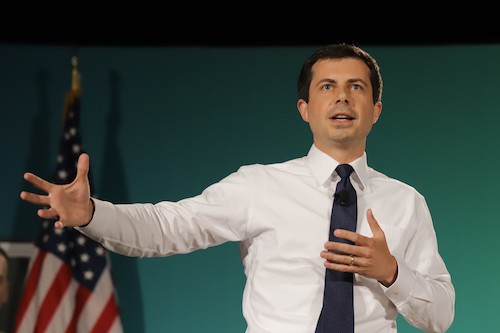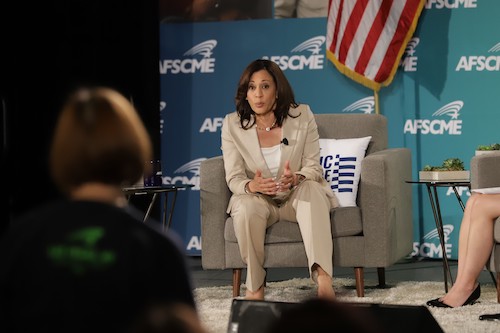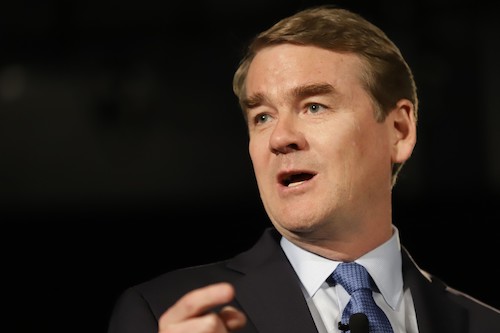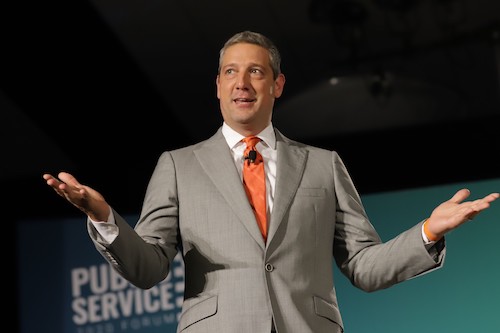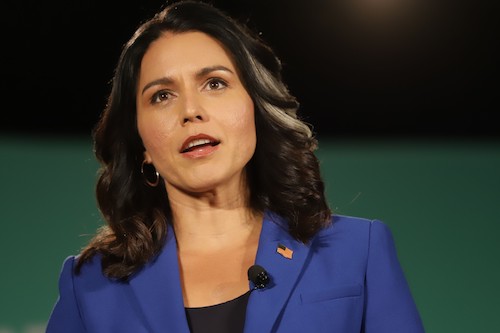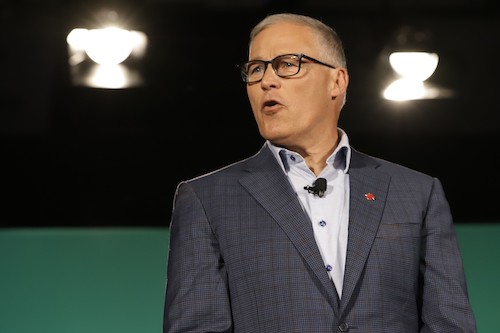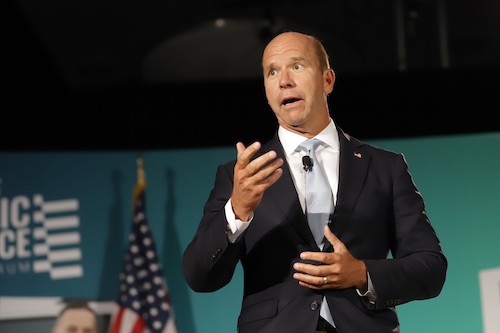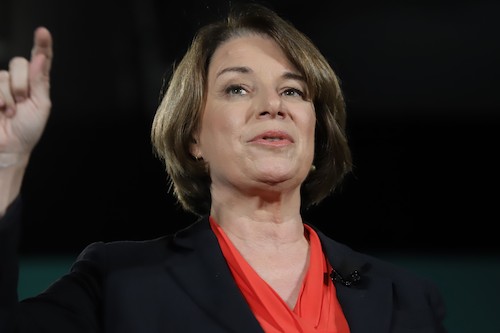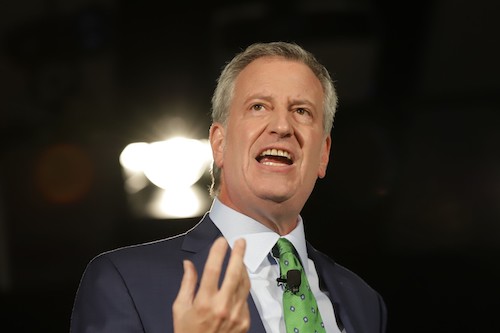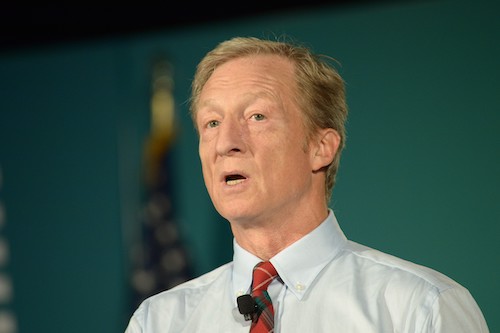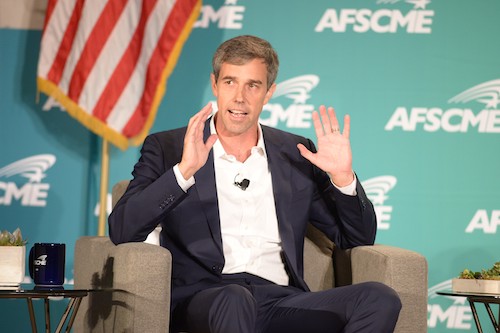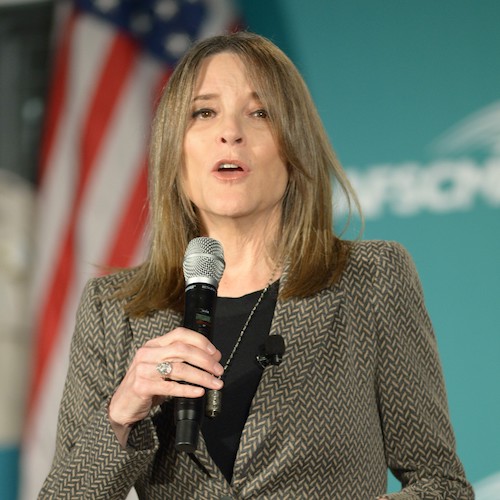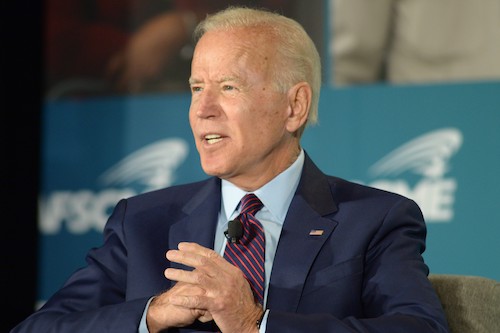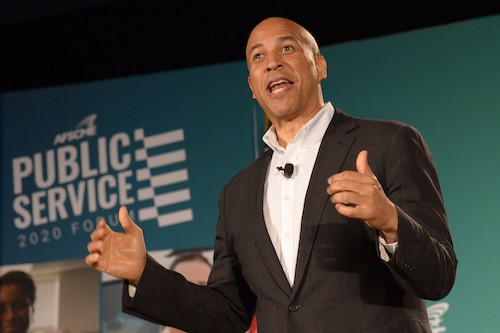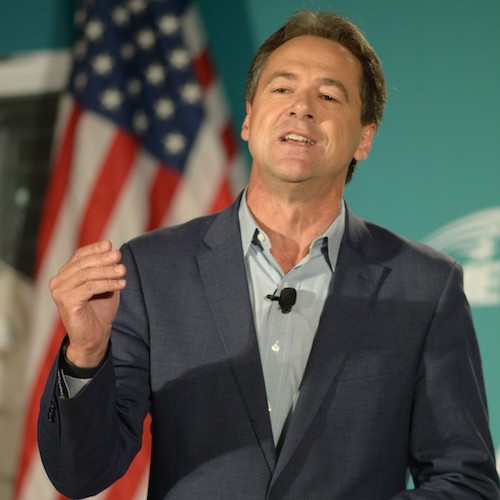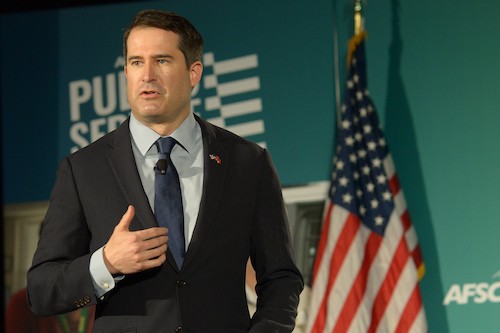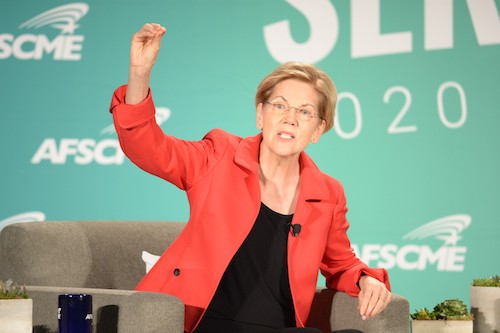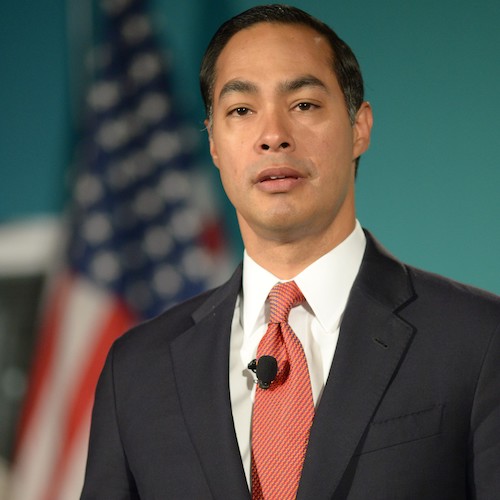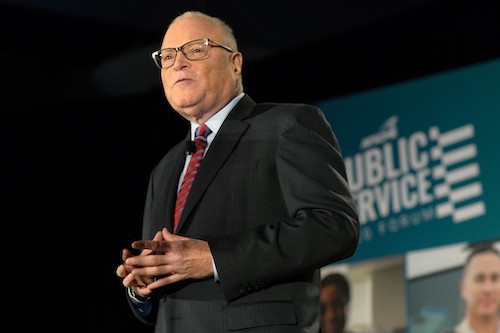The 19 presidential candidates who participated in the AFSCME Public Service Forum on Saturday disagreed on a range of topics, but they all agreed on one issue – our country needs a federal law that expands and protects collective bargaining rights for all public service workers.
At the one-of-a-kind forum, held at the University of Nevada, Las Vegas, the candidates answered questions from AFSCME members and the two moderators, Amanda Terkel of HuffPost and Jon Ralston of The Nevada Independent. The topics ranged from health care to gun control, climate change to infrastructure, student debt to immigration reform.
While they presented divergent and sometimes conflicting perspectives on more than one issue, all of them pledged to support federal legislation expanding collective bargaining for public service workers throughout our country.
Thanks to a surge of activism from AFSCME members, Nevada recently passed a law granting collective bargaining rights to 20,000 state employees, the largest expansion of such rights anywhere in the U.S. in 16 years. The question of whether there should be a federal law that guarantees such rights to all public service workers arose in the context of this victory.
Collective bargaining was the first question asked of each presidential candidate and the only question posed to them all.
Every candidate answered it strongly in the affirmative. Some mentioned their support of the Public Service Freedom to Negotiate Act, which would safeguard public service workers’ right to a seat at the table by setting a minimum nationwide standard of collective bargaining rights. Many elaborated on the important role of unions in strengthening the economy and on the need to increase union membership by making it easier, not harder, for workers to join together in strong unions.
Massachusetts Sen. Elizabeth Warren said unions “built America’s middle class and will rebuild America’s middle class,” adding, “I will stand up for public service and for the best of what we see in government workers. Government makes for the strongest possible America.”
Former Vice President Joe Biden, in his opening remarks, paid tribute to public service workers. “Without AFSCME, without public employees, nothing functions,” he said. “We can get rid of every hedge fund manager in America and nothing would change. We get rid of public employees and we’re in trouble. Everything that happens in our communities depends on you.”
Vermont Sen. Bernie Sanders said that if he’s elected president his government would be one “of workers, by workers and for workers.” In addition to issuing a strong statement condemning private prisons, he promised to appoint a secretary of labor who is either a union leader or a strong defender of working people and trade unions.
California Sen. Kamala Harris, in answer to an AFSCME member’s question, said she supports child care workers organizing to receive the benefits and pay they deserve. She also said that if elected president, she would put in place “a secretary of labor who actually understands the dignity of work,” adding, “I’m in solidarity and in support of the work you do every day.”
South Bend, Indiana, Mayor Pete Buttigieg said he was inspired by the passage of Nevada’s collective bargaining law, and that he believed the same could be achieved at the federal level if there is new leadership in the White House and Congress after the next election. He also pledged to rebuild American infrastructure, saying, “If we want to be a world-class country and compete with China, we need world-class infrastructure. People will be better able to live meaningful (lives) if they can get clean, safe drinking water, the trash gets picked up, and the roads are safe.”
All others spoke similarly in favor of empowering workers and their unions: Colorado Sen. Michael Bennet, New Jersey Sen. Cory Booker, Montana Gov. Steve Bullock, former Housing and Urban Development Secretary Julián Castro, New York Mayor Bill de Blasio, former Maryland Rep. John Delaney, Hawaii Rep. Tulsi Gabbard, Washington Gov. Jay Inslee, Minnesota Sen. Amy Klobuchar, Massachusetts Rep. Seth Moulton, former Texas Rep. Beto O’Rourke, Ohio Rep. Tim Ryan, business leader and philanthropist Tom Steyer and author Marianne Williamson.

